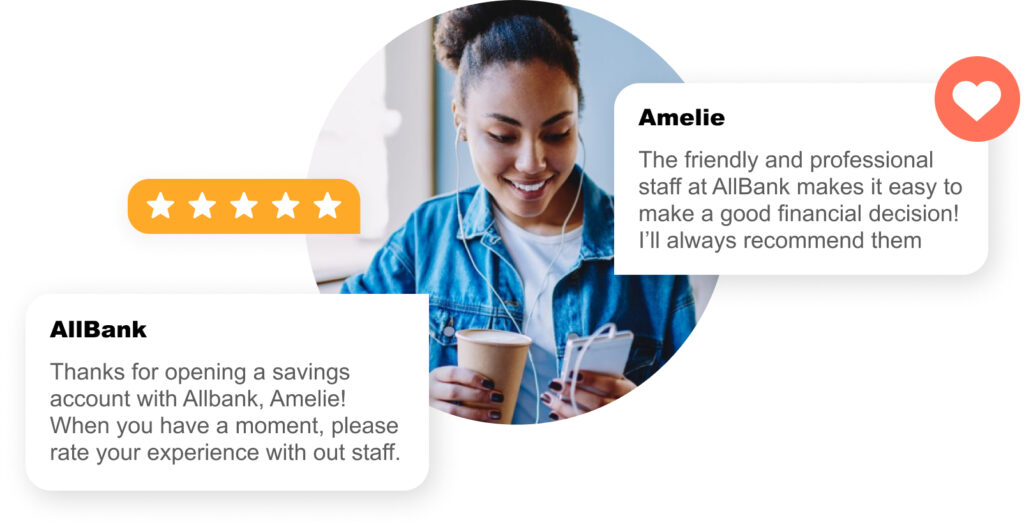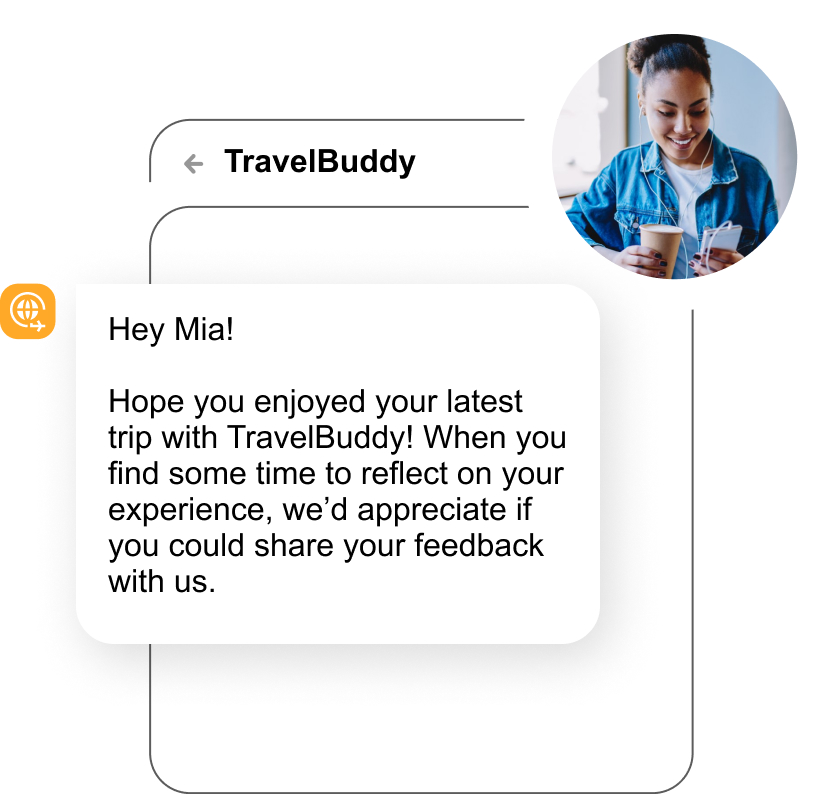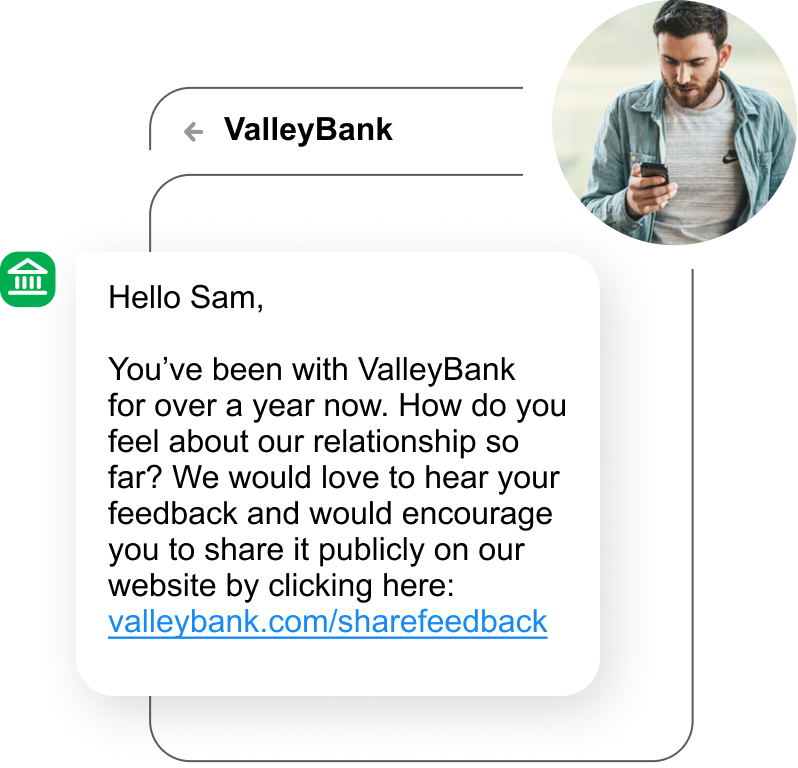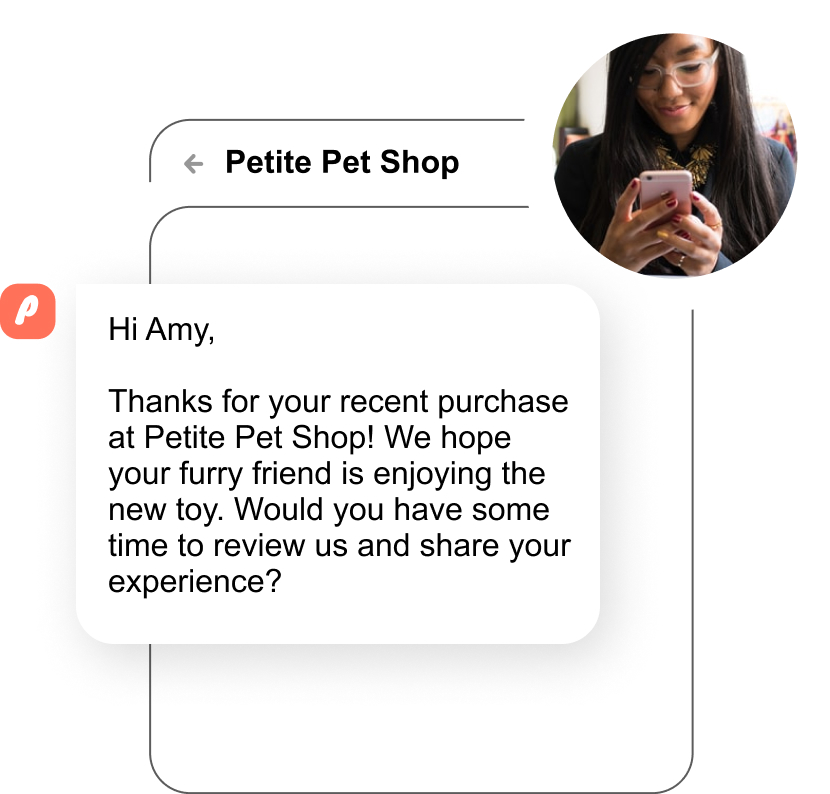Social proof is a psychological and social phenomenon that influences people’s decisions and actions based on what others say and do. According to BrightLocal, 76% of users will ‘regularly’ browse reviews of local businesses. Emplifi reveals that nearly 90% of consumers admit that real-life customer reviews/ratings have a greater impact on their purchasing decisions than influencer reviews. PowerReviews found that a massive 77% of shoppers will now specifically seek out websites with ratings and reviews available.
When consumers shop online without the ability to physically see the product or the people selling it, it is particularly important to build trust through social proof. Seeing a recommendation from a happy customer, ideally combined with an image or a video of the item in use, is more likely to push buyers to try it for themselves. Other types of social proof include company reviews, customer success stories, industry awards, and celebrity endorsements.

Social proof is a powerful tool that can positively impact customer trust, conversion rates and brand reputation. In this article, we will explore how marketers can boost it with tailored communications.
What is Social Proof?
The psychological foundation of social proof lies in our tendency to examine and copy the actions of people whom we like and trust. Social proof is also needed when we’re faced with multiple choices and need validation to support our decision. Gartner defines three aspects of social proof:
- Conformity – People tend to mimic the crowd in order to fit in and gain acceptance.
- Belonging – Humans are social beings who are always looking for those who share their beliefs and values. When they get a recommendation from such people, they’re more likely to take action.
- Trust – When faced with multiple choices, people tend to rely on the opinions of others who had already gone through a similar experience.
From Proof to Profitability in Any Vertical
In retail and e-commerce, creating trust is essential for converting casual browsers into paying customers both in-store and online. Retailers can leverage social proof through customer testimonials, positive ratings, and user-generated content such as influencer ads or video reviews. Displaying customer reviews alongside products can help potential buyers make their purchase decisions more confidently.
Social proof is essential not only for physical products but for software and service as well. Demonstrating the effectiveness and reliability of a solution is key, and this can take the form of use cases, case studies, press releases, and client testimonials. When potential clients see that others have successfully implemented and benefited from a particular SaaS solution, it enhances trust and increases the likelihood of conversion.
In the Banking, Insurance, and Financial Services (BFSI) industry, social proof is particularly significant as people’s financial decisions are not likely to be based on impulse. Consumers tend to consider multiple factors before trusting their money to a particular institution, one of them being other people’s experiences. Featuring compliance certificates and security standards on a BFSI website helps showcase dedication to consumer protection and build trust. Showcasing customer satisfaction scores and trust marks is another way to demonstrate reputability and influence people’s choices.
Best Practices for Asking Reviews
Companies looking to improve trust and drive conversions can implement a range of communications solutions to drive social proof. Critical things to consider include:
Channels
Sending a personalised thank-you SMS or email immediately after a purchase or sign-up is a great way to engage customers. By including a request for feedback or a review, companies can gain valuable acknowledgement they can use to build trust further. Personalised messages can make customers feel valued and more willing to share their experiences, which can also positively impact NPS results.
To make such requests convenient for a customer, companies can use SMS, WhatsApp or Viber, which offer a quick and easy way to take action. SMS messages will appear on a lock or home screen as standard, helping to catch a person’s attention. The text message can include a simple rating scale asking a recipient to type in a number denoting their likeliness to recommend a company’s service.
With over-the-Top (OTT) messaging apps, such as WhatsApp or Viber, brands can make this experience even more engaging. They can include visual content, and call-to-action buttons (CTA) to drive interaction.
Push notifications are another effective channel to use for this purpose as they can quickly grab consumers’ attention and drive actions intuitively.



Incentives
A particularly effective way to get responses is to offer an incentive or reward for positive feedback. For instance, using WhatsApp to ask customers to rate their recent purchase or customer service interaction for a chance to win a prize, or offering a scheme where customers can earn points for every review they make in exchange for discounts.
Timing
The timing of messages can also affect response rates. For a retail app, leaving a few days for a customer to try a product and form an opinion will help inspire a more genuine review. For a skincare product that may need a couple of weeks for results to show, it might be necessary to leave a bit more time between purchase and a review request.
Reviews may also follow a customer support ticket that has been successfully resolved. Quick and professional customer service will improve customer satisfaction, and therefore result in a better review. AI chatbots are a great solution for fast customer support, so this is a good option for businesses to offer customers as a first point of contact, before being routed to a human agent when necessary.
Responding to public reviews is also an essential step in building an open environment where customers feel welcome to share their opinions. Showing that your team values their thoughts and genuinely takes feedback into account can be a way to build transparency and trust. Responding to negative reviews is particularly important for neutralising potential brand damage and showing consistency and dedication to customer communications.
Converting Consumers into Customers
Using social proof is key for building trust and credibility for any brand, online or in-person. By utilising omnichannel communications to invite customers to submit reviews, markets within retail, e-commerce, SaaS, and BFSI industries can significantly boost social proof and drive conversions.
The impact of social proof goes beyond just profit levels. It can humanise a brand and foster a sense of community among customers. As companies navigate the quick developments in commerce and technology, social proof is a great way to guide them from curiosity to conversion.
To find out more about building social proof via timely and reliable messaging communications to improve conversions and customer experience, speak to our GMS experts today!

